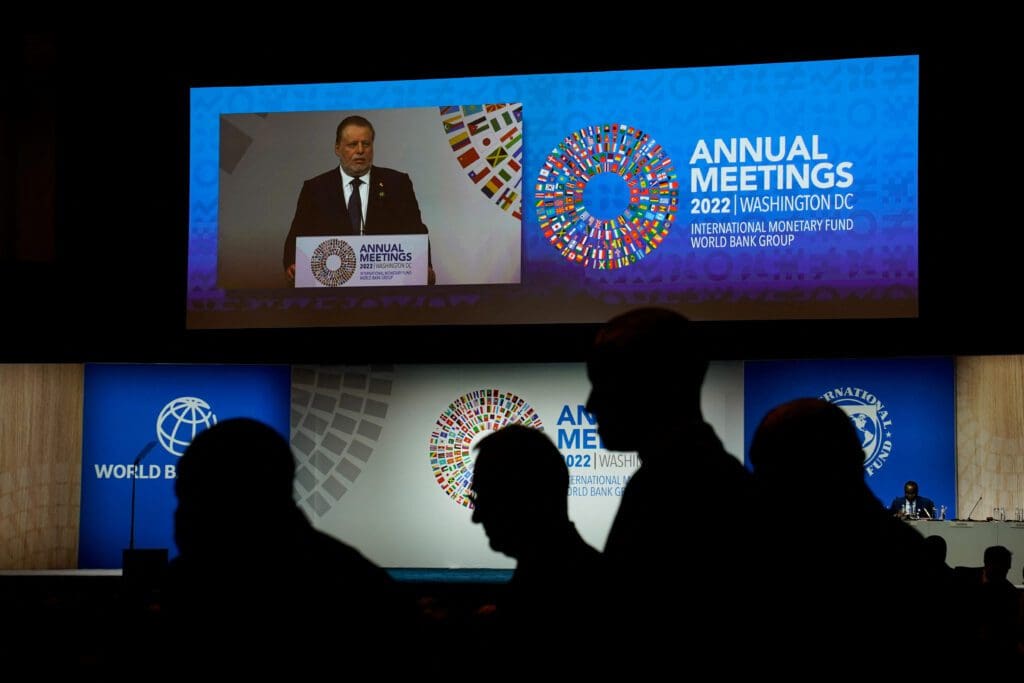It is widely known that the Middle East and North Africa (MENA) region suffers from a “democratic deficit.” What is less well-appreciated is that the region also suffers from a chronic deficit in transparency. The World Bank’s Vice President for MENA, Ferid Belhaj, recently called attention to this problem, stating that Egypt needs to get more transparent about its debt, particularly involving liabilities for state owned enterprises. His advice is timely given the growing jitters in international financial markets regarding highly indebted countries, which include Egypt, Jordan, and Tunisia. Egypt’s economic program with the IMF, which is due for a review to unlock desperately needed external funding, will likely demand greater transparency over public finances including the role of the army in the economy.
In fact, empirically MENA is the least transparent region in the world. The graph below, which tracks the global proliferation of Right to Information (RTI) legislation, nicely illustrates this point. RTI legislation spread rapidly across the globe starting from the mid-1990s. Unfortunately, as the graph illustrates, many MENA countries came late to the party – or stayed away entirely. Only two, Tunisia and Yemen, have legislation consistent with international best practice, and that of wartorn Yemen is no longer operational. A few other MENA states have passed other forms of RTI legislation, but it is often riddled with exemptions and other provisions that undermine its utility. Moreover, the implementation of such laws is often found wanting.
RTI is but one dimension, albeit one of the more visible and important, of the broader transparency agenda. The MENA region sits near the bottom of other global rankings too. The Open Budget Index measures the degree to which fiscal information is shared and disseminated with the broader public. In the most recent survey, five of the worst 17 performers are MENA countries—the highest number from any region except Sub-Saharan Africa. Few MENA governments routinely release performance data on government operations, although this is starting to change slowly in some places, notably the Gulf Cooperation Council (GCC). Generally, even micro-data from statistics agencies on issues such as consumption, health, the labor force and population are often hidden from public view.
Such gaps are unfortunate, as transparency can bring numerous benefits. For example, various studies have shown a link between transparency and an ability to prevent financial crises. There is growing evidence that transparency can play a positive role in financial markets, particularly by insulating economies from swings in global liquidity, which can be particularly destabilizing for the finances of developing countries. In contrast, poor governance and limited transparency have been shown to have a detrimental impact on foreign direct investment flows, credit ratings and sovereign spreads (a measure of a country’s creditworthiness, as reflected in its yields as compared to US treasury bonds). More transparent countries tend to have better fiscal discipline and less corruption. Similarly, transparency and public participation can help highlight leakages, improve efficiency in public spending, and foster equity by better matching revenues from natural resources with national priorities.
Researchers have also explored the link between transparency and the effectiveness of government. There is evidence that transparency can reduce political corruption and strengthen accountability to citizens. Governments that provide better economic data are also more efficient and less susceptible to corruption, as well as experience lower rates of contract repudiation and expropriation risk. Countries that are highly transparent about their budgets also tend to achieve positive development outcomes and better realize the economic and social aspirations of their citizens. Among countries with similar levels of income, those with more transparent environments tend to have demonstrably more effective government agencies.
Some researchers and global institutions have started to push for greater government transparency in the MENA region. In October, the World Bank published a 250-page report calling for “greater transparency and accountability” in the region. Its authors argue that increased transparency would have two major benefits for MENA governments themselves: improving accountability both to the public and between government departments; and improving their adaptability. Global events in recent years have starkly demonstrated that when confronted with large exogenous shocks—pandemics, climate change, spikes in global food prices or stresses in financial markets—MENA governments need access to accurate, timely information to make appropriate decisions. Furthermore, when compared with many other public sector reforms, transparency reforms are often relatively easy and cheap to implement.
The World Bank is not alone among international financial institutions pushing for more transparency. The International Monetary Fund’s recent $3 billion stabilization program for Egypt contained a variety of transparency-related reforms as part of a broader package of measures targeted at slashing the country’s debt-to-GDP ratio, strengthening the budget process and promoting market confidence. These measures included the publication of annual reports on tax breaks, exemptions and incentives, to help level the playing field between private firms and Egypt’s vast state-owned companies. What is noteworthy is the support that these reforms are receiving from others in the region. Saudi Arabia recently announced that there would be “no more blank checks” with regard to its financial support for Egypt. “We are working with multilateral institutions to actually say, ‘We need to see reforms,’” Saudi finance minister, Mohammed al-Jadaan recently stated in Davos.
Time to Do Better
Of course, transparency alone is not a panacea. Much more research is needed on the relationship between transparency and accountability, as are efforts to ensure that accurate information flows to the right places and is used effectively. State institutions, from audit offices to presidencies, can often use data more effectively and hold other government entities accountable.
Ensuring transparency is more complex than just sharing information, but its benefits far outweigh its costs, and governments can do better. This is particularly true in countries with large and growing levels of debt, where potential investors must carefully weigh the risks of default and can be put off by a lack of visibility regarding contingent liabilities and the financial obligations of state-owned enterprises.
A good start would be simply to make budgetary, survey and government performance data available to the public. Subsequently, governments could tackle broader and more complex issues such as RTI legislation. Transparency reforms are achievable within a relatively short timeline. Given the major fiscal and economic benefits they can bring at relatively low cost, governments would do well to prioritize such measures.
The opinions expressed in this article are those of the author and do not necessarily reflect the views of the Middle East Council on Global Affairs.



